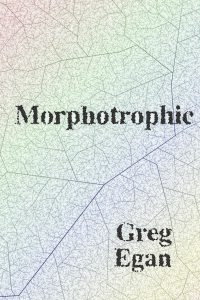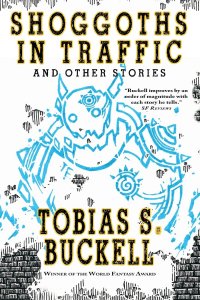Faren Miller reviews J.M. Sidorova
 The Age of Ice is the first novel of J.M. Sidorova, a Russian-born woman who moved to the States in 1990 and now works as a research professor of aging and carcinogenesis at a university in Seattle WA. This might sound like a good background for science fiction, but the protagonist of Age owes his vastly extended life (which began in 1740 and shows no signs of stopping) to a mysterious oddity of his nature, somehow triggered by gestation on a glacial wedding bed in an ice palace – a genuine marvel in St. Petersburg, commissioned by the Empress Anna Ioanovna and described at length in a 2006 magazine article, enclosed with Scribner’s PR package.
The Age of Ice is the first novel of J.M. Sidorova, a Russian-born woman who moved to the States in 1990 and now works as a research professor of aging and carcinogenesis at a university in Seattle WA. This might sound like a good background for science fiction, but the protagonist of Age owes his vastly extended life (which began in 1740 and shows no signs of stopping) to a mysterious oddity of his nature, somehow triggered by gestation on a glacial wedding bed in an ice palace – a genuine marvel in St. Petersburg, commissioned by the Empress Anna Ioanovna and described at length in a 2006 magazine article, enclosed with Scribner’s PR package.
The main character will spend decades, then centuries, trying to find out why his appearance stalled at about 19 years while others age around him, over the course of a life anchored by events straight out of history (listed in a time line that shows up among the addenda). In what should have been early middle age, he joins a proposed Arctic expedition led by British explorer/scientist Captain Billings – presumably the source for Kiernan’s updated Dr. Billings – to learn more about the properties of ice and cold, to whose ravages he is strangely immune. Still, even as the Age of Reason dawns and comes into full flower, much of the life of this oddball follows a course that seems closer to fantasy and fable, given a wry twist.
The parents recover from their icy disgrace enough for Alexander Velitsyn and his (mundane) twin Andrei to be raised as Princes on an estate in the Russian countryside. When family finances worsen, Andrei manages to assume the mantle of military hero while Alexander just roams. There are some bright moments. Heading toward the Arctic in miserably foul weather, he begins to see his response to plunging temperatures as something more positive, both mystic and erotic:
[A]s all these mercury needles sank into the white flesh of snow and were swallowed and disappeared without a trace, I realized with the last bit of my mind capable of human irony, that in the end no one but I had the temperature point of transfiguration. No one else’s last words but mine were freezing into garlands straight out of his mouth. But the next moment none of it mattered, everything turned into contentment.
Yet his wayward metabolism also messes up Alexander’s life. When he returns to his lady love Anna as an idealistic industrialist, driven to manufacture ‘‘ice as pure as an angel’s tear… extraordinary ice,’’ their moments of physical contact – human to whatever the hell he is – don’t get much easier after he’s linked ice and eros.
There is still a long, long way to go, in a labyrinthine saga that meanders through the Seven Years War, battles with the Ottomans and later with Napoleon’s armies, on to World Wars I and II, then our own century, while he encounters cultural landmarks from Goethe to the English Romantics (including Mary Shelley), from Stravinsky’s startling innovations in classical music to the tumult of the 1968 student uprisings in France… and beyond.
In the wrong hands, with the wrong narrative voice, such a project might become an overly ambitious hodgepodge. But even if The Age of Ice sometimes strains patience or belief with its vast wealth of detail, on the whole Alexander’s sharp observations – and the author’s ability to plunge him into the thick of things, fraught with emotions far more intense than ennui – display a remarkable power. As the world seems to shrink, its borders much closer than they were centuries ago, this man of many lives (prince, slave, industrialist, aesthete, et cetera) sees it clearly from the vantage of strangeness: his endless fascination with the cold.








